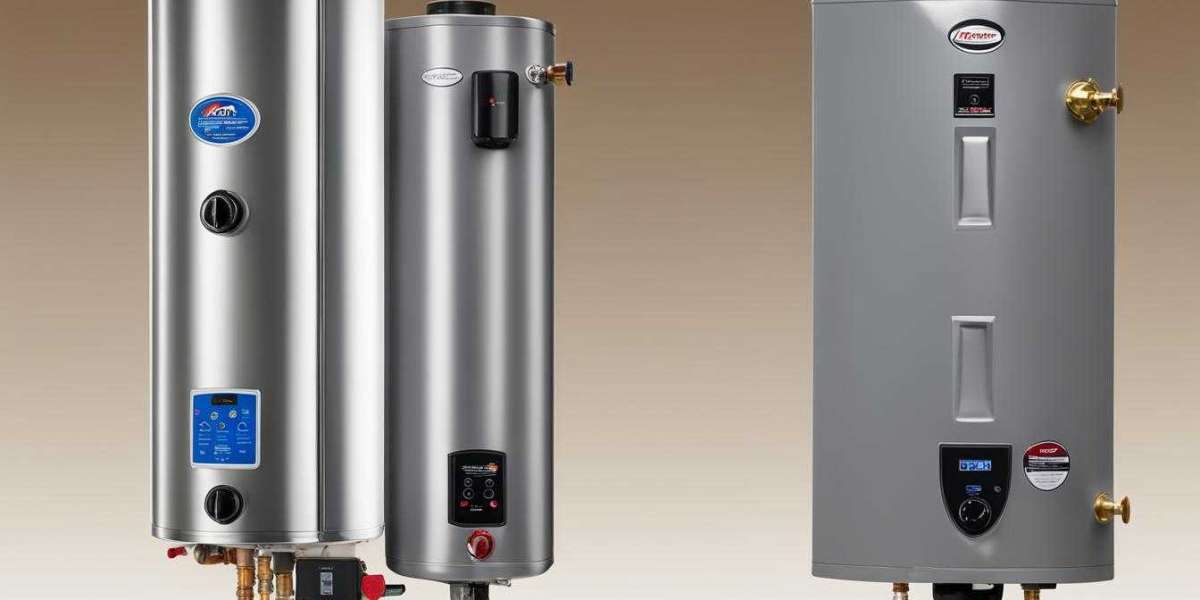Water heaters are essential appliances in most homes, but they can pose serious fire hazards if not properly maintained. While both gas and electric water heaters can potentially cause fires, they have different risk factors.
Understanding these risks can help homeowners take necessary precautions to ensure safety. In this article, we compare the fire hazards associated with gas and electric water heaters and provide tips on how to prevent accidents.
Gas Water Heater Fire Risks
Gas water heaters use natural gas or propane to heat water, making them more prone to fire hazards if not properly maintained. Here are the main risks:
Gas Leaks
A faulty gas line, loose connections, or damaged components can cause gas leaks. Since gas is highly flammable, even a small spark can ignite a fire or cause an explosion.
Flammable Vapors
Gas water heaters have an open flame (pilot light) at the bottom. If flammable substances like gasoline, paint thinners, or cleaning agents are stored nearby, they can ignite, leading to a fire.
Ventilation Issues
Improper venting can cause carbon monoxide buildup, which increases the risk of fire and health hazards. Blocked or damaged vents can cause incomplete combustion, leading to overheating and potential ignition.
Pilot Light Malfunctions
If the pilot light goes out and gas continues to flow, an ignition source (such as a spark or static electricity) can cause a fire.
Overheating Due to Thermostat Failure
If the thermostat malfunctions, it may cause the burner to overheat, potentially leading to a fire or explosion.
Electric Water Heater Fire Risks
Electric water heaters don’t use gas or an open flame, but they still pose fire risks due to electrical malfunctions. Here are the key hazards:
Faulty Wiring or Electrical Shorts
Loose or damaged wiring can cause electrical shorts, leading to sparks or overheating, which can ignite nearby materials.
Overloaded Circuits
If the water heater is connected to an overloaded electrical circuit, it can overheat and start a fire.
Heating Element Failure
Over time, the heating elements inside an electric water heater can wear out. If the thermostat fails to regulate temperature properly, the heating element may overheat and cause a fire.
Sediment Buildup and Overheating
Sediment buildup in the tank can cause the heating element to work harder, leading to overheating and potential fire risks.
Gas vs. Electric: Which One is More Fire-Prone?
| Risk Factor | Gas Water Heater | Electric Water Heater |
|---|---|---|
| Gas leaks | High risk | Not applicable |
| Open flame ignition | High risk | No open flame |
| Flammable vapor exposure | High risk | No risk |
| Electrical fires | Low risk | High risk |
| Overheating risks | Medium risk | Medium risk |
While gas water heaters pose a higher risk of fire due to gas leaks and open flames, electric water heaters also have risks, mainly related to electrical malfunctions.
How to Prevent Water Heater Fires
For Gas Water Heaters:
Check for gas leaks regularly using a soap and water solution on the gas line.
Keep flammable materials (gasoline, paint, etc.) away from the heater.
Ensure proper ventilation to prevent gas buildup.
Inspect the pilot light and burner for any irregularities.
Schedule professional maintenance at least once a year.
For Electric Water Heaters:
Inspect wiring and connections for any damage or loose connections.
Ensure the unit is on a dedicated circuit to prevent overloading.
Flush the tank periodically to remove sediment buildup.
Replace old heating elements if they show signs of wear.
Install a temperature and pressure relief (TPR) valve to prevent overheating.
Both gas and electric water heaters have their own fire risks, but with proper maintenance and safety precautions, these risks can be minimized. Gas water heaters are more prone to fire hazards due to gas leaks and open flames, while electric models are at risk of electrical fires and overheating.
Regular inspections, safe installation, and keeping the area around your water heater clear of flammable materials can help keep your home safe from potential fire hazards.




